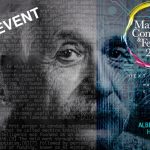By The Malketeer
In today’s rapidly evolving digital landscape, marketers are tasked with creating more content than ever before across an ever-increasing number of channels and platforms.
It’s an immense challenge that requires fresh approaches and new ways of working smarter, not just harder.
According to LinkedIn’s 2024 Marketing Jobs Outlook report, artificial intelligence (AI) has emerged as a powerful solution and critical skillset for marketers looking to increase efficiency, streamline content creation, and drive more engaging campaigns.
The findings reveal a striking trend – the number of marketers listing AI as a key skill on their LinkedIn profiles doubled from 2022 to 2023.
This explosive growth in AI capabilities for marketing isn’t just a passing fad. It reflects a fundamental shift in how modern marketing gets done.
AI is quickly becoming a core competency that brands can’t afford to ignore if they want to stay ahead of the competition.
The AI Marketing Revolution
The report’s data paints a clear picture – AI has gone mainstream for marketing teams.
More than two-thirds of B2B marketing leaders surveyed say they are already using AI applications to power their strategies and execution.
The top use cases driving this AI adoption include:
- Building more content in less time (56%)
- Improving overall marketing efficiency (55%)
- Creating more engaging, personalised content (51%)
In the past, producing large volumes of quality content was an enormous time and resource drain for marketing teams.
But with AI, marketers can now generate first drafts, outlines, copy, images, video scripts and more with just a few prompts.
AI handles the heavy lifting, freeing up marketers to focus on strategy, reviewing and fine-tuning the AI output to maintain brand voice and quality standards.
“AI is a force multiplier for our content creation efforts,” says Jenny Rogers, CMO at CloudRupture.
“Instead of spending weeks developing a new ebook or whitepaper from scratch, our writers can leverage AI to rapidly create the initial drafts. We can then quickly review, polish and perfect the AI-generated content while maintaining our distinct brand voice,“ he adds.
Beyond just content creation, AI is also driving smarter content personalisation and targeting through natural language processing, predictive analytics, and machine learning capabilities.
This allows marketers to hyper-segment audiences, analyse massive datasets, and automatically generate the ideal messaging and creative for each micro-segment.
“AI helps us connect with our customers in a more relevant, personalised way at scale,” writes Hassan Al-Ibrahim, Head of Marketing at FinSmart.
“We can automatically create millions of social media ads and emails with highly targeted messaging and creative tailored for each individual customer using AI and real-time data. It’s a level of personalisation that simply wouldn’t be possible without leveraging AI.”
Developing an AI-Skilled Marketing Workforce
With AI driving such powerful marketing capabilities, it’s no surprise that AI skills have become a “must-have” for modern marketers according to the LinkedIn report.
Currently, the most common AI-related interview question is “Tell me about how you are using AI at work and at home.”
Forward-thinking brands recognise that having a pipeline of AI-skilled marketing talent will be critical for maintaining a competitive edge.
Marketers who can leverage AI to streamline workflows, enable rapid content creation, and power more data-driven, personalised campaigns will be in high demand.
According to Jenny Rogers of CloudRupture, “When we’re evaluating marketing candidates today, hands-on experience using AI tools for content creation and data analysis is a big plus. We expect that AI proficiency will only become more important for marketers over time.”
While AI promises to revolutionise marketing, it won’t render human marketers obsolete.
As technology handles more repetitive, time-intensive tasks, marketers will be freed to focus on higher-level strategy, creativity and relationship-building with customers and partners.
“AI is a powerful tool, but it’s not a magic wand – human oversight and direction is still essential,” cautions Hassan Al-Ibrahim of FinSmart.
“The most successful marketing teams will be those that leverage AI’s capabilities while maintaining meaningful human involvement.”
In the years ahead, AI skills will be foundational for thriving marketing careers.
The brands that empower their marketing teams to embrace and capitalise on AI’s potential today will be powerfully positioned for success in our increasingly AI-driven world.
Join us at the Malaysian Marketing Conference and Festival 2024 to learn more about the must-have requisite AI skills the marketers of tomorrow need to stay ahead of the competition.
MARKETING Magazine is not responsible for the content of external sites.









